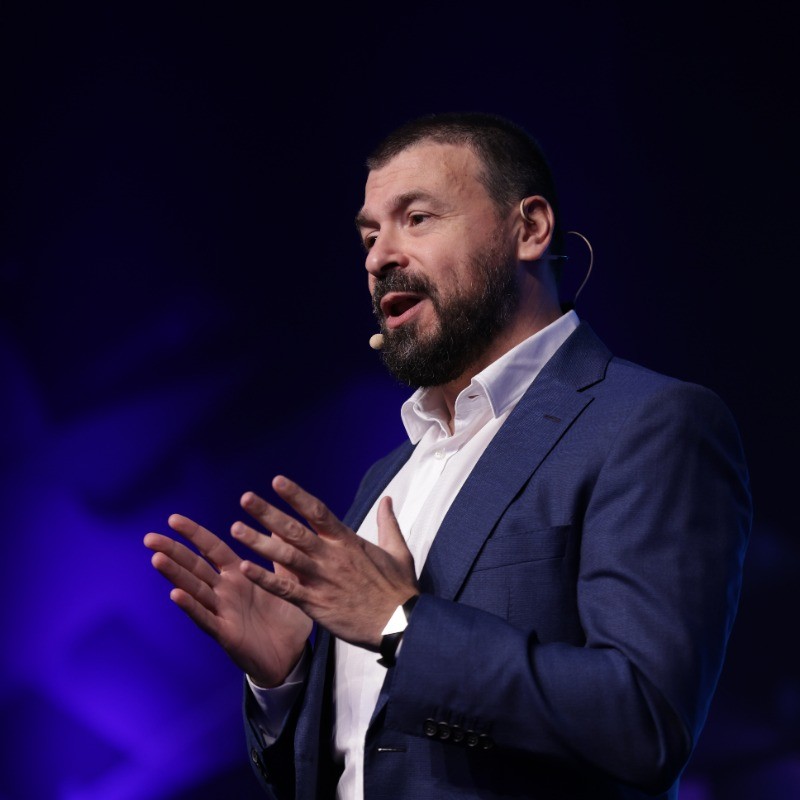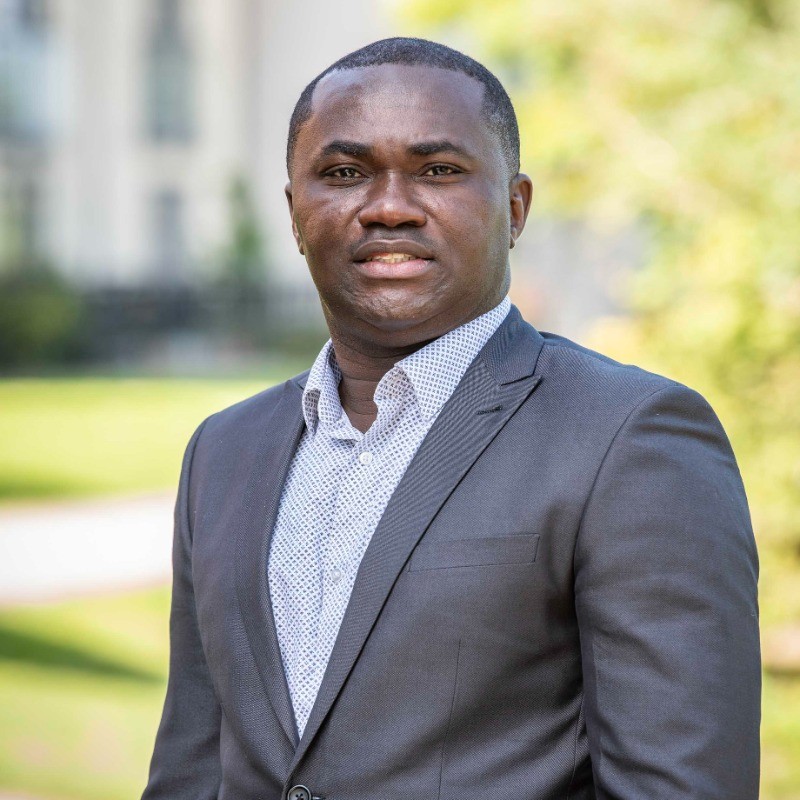A Conversation with Alaa Dalghan
Key Takeaway
- AI strategies must align with sustainability and urban development goals.
- Smart cities powered by AI can accelerate progress toward Net Zero and the circular economy.
- Ethical, inclusive design is critical to avoid deepening digital divides.
- Cities using AI for traffic, energy, and waste are seeing measurable sustainability gains.
- The future of AI in cities lies in transparency, collaboration, and innovation.
Speaker Profile
Our Guest Speaker is Alaa Dalghan

Alaa Dalghan is a senior AI and smart cities executive with 18+ years of experience in digital transformation, machine learning, and IoT. A trusted advisor to C-level executives, Alaa is a sought-after keynote speaker (including TEDx) and a visionary in aligning AI strategies with sustainable urban development. His work spans both public and private sectors globally, shaping cities of the future
Why This Matters for Sustainability
As cities face mounting pressure from population growth, climate change, and resource constraints, integrating AI into urban infrastructure offers a powerful lever for sustainability. This episode explores how AI-driven decision-making, real-time data analysis, and predictive technologies can reduce emissions, enhance resilience, and optimise energy and waste systems. But these benefits come with challenges—especially around ethics, equity, and energy consumption. We dive into both sides.
Game-Changing Ideas from the Episode: Ethics, Equity, and AI for Sustainability
This conversation between Dr. Enock A. Ebbah and smart city expert Alaa Dalghan goes beyond hype to explore how AI, when used responsibly, can help build sustainable and inclusive urban futures. The following insights reveal the promises and pitfalls of AI in cities—from team capability and ethical design to emissions and equity.
1. Upskilling Is Non-Negotiable
Alaa emphasises that AI strategies are only as strong as the people behind them. Equipping teams with the right technical and strategic skills isn’t just a productivity issue—it’s a sustainability imperative. Skilled teams are more likely to deploy AI tools in ways that align with long-term environmental and social goals.
“Upskilling your AI team is crucial—not just for productivity, but for sustainability alignment.”
— Alaa Dalghan
2. Smart Cities Must Be Ethically Smart
As cities race to adopt AI systems, Dr. Enock reminds us that technology must be deployed equitably—not just efficiently. Without ethical design, AI could reinforce existing inequalities and exclude the very communities that sustainability aims to support.
“Smart cities need to be smart ethically too—designing with equity, not just efficiency.”
— Dr. Enock A. Ebbah
3. Data-Driven Systems Are Cutting Emissions
When AI is deployed effectively, the sustainability benefits are tangible. From traffic optimisation to dynamic energy use, autonomous systems powered by real-time data are already helping cities reduce emissions and congestion. Alaa’s insight here points to AI as a powerful operational tool in the climate fight.
“Autonomous systems are reducing congestion and emissions—real-time urban data is changing the game.”
— Alaa Dalghan
4. Inclusion Is the True Test of Urban AI
Perhaps the most urgent insight came as a warning. As cities digitalise, there is a risk that AI could exacerbate social divides. Alaa advocates for inclusive design that doesn’t leave low-income, marginalised, or digitally disconnected communities behind.
“We can’t let AI deepen inequality in urban areas. Sustainability means inclusive tech.”
— Alaa Dalghan
These insights underline a powerful message: AI is not inherently sustainable. It must be guided—by people, by ethics, and by inclusive strategies—if we want it to serve the needs of both planet and people.
Ready to Lead Smarter Sustainability Decisions?
Listen to the full episode now and discover how AI and smart cities are transforming urban sustainability—with real-world examples and expert strategies.
Listen on your favourite platform:
Spotify: https://open.spotify.com/episode/3uWkQoRvCGEZnGSCe9kHd7?si=f1228952923941aa
YouTube: https://www.youtube.com/watch?v=3ANjTkhZrUU
Download Your Free Resource:
“Checklist for Building a Business Case for Sustainable Innovation”
To implement smart city tech or AI-powered sustainability projects, you need executive backing. This step-by-step checklist helps you craft business cases that turn ideas into action—and secure leadership buy-in.
Sources
Alaa Dalghan podcast interview transcript and research insights
Smart city frameworks from the World Economic Forum
Net Zero & Circular Economy goals (UNEP, IPCC reports)

